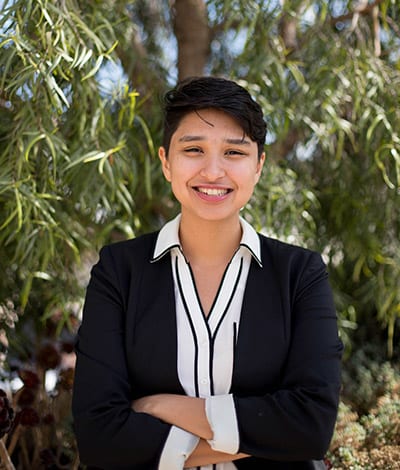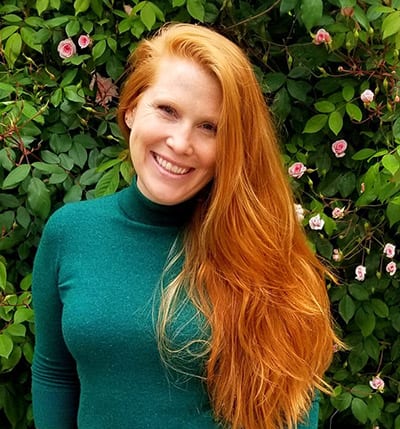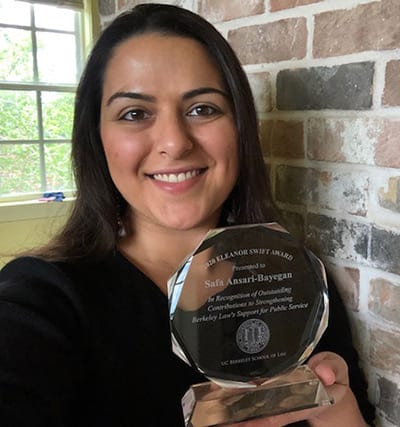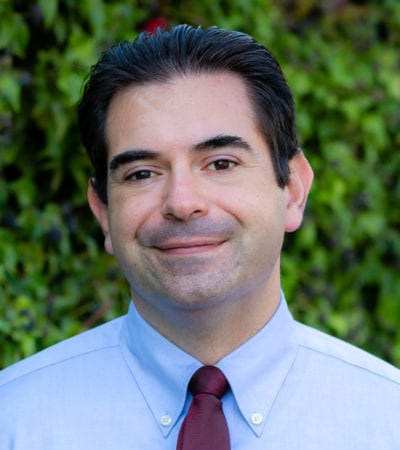By Andrew Cohen
Pro bono and public service work are core values at Berkeley Law, where the vast majority of students help those in need through volunteer legal assistance before graduating. To stand out among such a crowd requires extraordinary commitment, tenacity, and leadership.
Kiki Tapiero ’20, Alex Copper ’20, Safa Ansari-Bayegan ’20, and Miguel Soto check all those boxes and more. Tapiero and Copper are this year’s Pro Bono Champions, given to graduating students who best exemplify a commitment to and the values of pro bono work. Ansari-Bayegan and Soto received the Eleanor Swift Award, given to exceptional students, staff, or faculty who perform outstanding work that strengthen Berkeley Law’s commitment to public service.
Leading by example

During their 2L year, while most classmates were cramming for final exams, Tapiero worked furiously to coordinate a pro bono trip to Tijuana. Supervised by a legal services nonprofit, they and nine other students spent a week over winter break helping Central American migrants and refugees hoping to gain asylum into the United States.
Tapiero also channeled a passion for immigration work at the Berkeley Immigration Group, which enjoyed a dramatic membership increase during their co-director tenure. Students prepare bond packets for detained immigrants, conduct know-your-rights trainings at immigration court, observe court proceedings, and raise funds for the group’s immigration bond fund.
“Berkeley Law’s pro bono culture is very much informed by its students’ passion,” says Tapiero, who will work at the Bronx Defenders Immigration Practice after graduation. “I am inspired every day by creative projects that students come up with and make into realities.”
Also active in the East Bay Community Law Center’s Immigration Clinic and La Raza Workers’ and Tenants’ Rights Clinic, they met regularly with professors and administrators to help public interest-focused students in numerous ways.
“The most meaningful part of my pro bono experience at Berkeley Law has been the relationships I’ve made with clients, attorneys, students, activists, and other folks doing this work,” Tapiero says. “Through them, I’ve learned many ways good lawyering can look like—organizing with communities, working on larger scale change, educating about the legal system, and more.”
Relentless commitment
Copper spent 2½ years working with Sydney Royer ’20 to help a San Quentin prisoner through the Post-Conviction Advocacy Project, eventually representing him in his parole proceedings. That included a hard denial of parole, a successful appeal, and recently an exhilarating parole grant.

Having lived in several states before law school, Copper says “I know how different the law can look depending on where you live.” That knowledge drew her to the Berkeley Law Alternative Service Trips (BLAST) and their mission to serve the needs of different communities.
As a 1L, BLAST’s inaugural trip took Copper to Whitesburg, Kentucky, where she and three other students drafted a Supreme Court amicus brief for the National Black Lung Association. As a 2L, BLAST took her back to Mississippi—she led the trip with Ansari-Bayegan—to document adequacy of counsel in juvenile criminal proceedings.
This year, while also serving as managing editor of the California Law Review and active in the Policy Advocacy Clinic and inaugural Election Law Practicum, Copper was a BLAST executive director and helped expand the program to seven planned trips. Though six were canceled or postponed due to COVID-19, she says building the program and solidifying it for future students has been tremendously rewarding.
This fall, Copper will start a one-year fellowship focused on election law and voting rights issues at the Campaign Legal Center in Washington, D.C., before clerking for Judge Valerie Caproni (Southern District of New York). “At Berkeley Law, pro bono work and legal service are an assumption, not an exception,” she says. “It’s a place where you’re constantly surrounded by brilliant, kind people doing inspiring work to help others and each other.”
Innovative and impactful

The Swift Award caps a remarkable 3L year for Ansari-Bayegan. In the fall, she and classmate Abbey Flynn organized an impressive symposium on participatory defense. The movement promotes community organizing and advocacy in the criminal justice system to support people facing charges, with family members helping public defenders create a more complete picture of their loved one.
In the Death Penalty Clinic, she drafted major portions of a state habeas brief on behalf of an Alabama death row client, interviewed witnesses, and contributed to other aspects of state post-conviction litigation. At the East Bay Community Law Center (EBCLC), she represented young people at the intersection of the juvenile justice and education systems in special education administrative hearings, school discipline proceedings, and juvenile record sealing.
Co-president of Berkeley Law’s Criminal Defense Society last year, Ansari-Bayegan was one of just three 3Ls chosen for the E. Barrett Prettyman Fellowship out of hundreds of applicants. The coveted two-year LL.M. fellowship in Washington, D.C., develops talented, devoted indigent defense counsel through rigorous training in criminal trial advocacy and clinical teaching.
“I chose Berkeley Law because of its public service mission and am so grateful to be a part of this special community,” Ansari-Bayegan says. “I’ve had many opportunities over the last three years to contribute to public service, and have been fortunate to do this work alongside such talented and compassionate classmates.”
Consumer protector
Soto received a whopping eight nomination letters for the Swift Award, including one signed by 38 students and recent graduates. The supervising attorney of EBCLC’s Consumer Justice Clinic, he is widely hailed as a dedicated mentor who deftly trains students in litigation and legislative advocacy. Soto recently created a new teaching model and small claims case training manual for the student-led Consumer Rights Workshop to make them more accessible for 1Ls.

“Consumer protection law lets people protect their rights, their assets, and above all their dignity and self-worth,” he says. “I also think it’s an important area of civil rights that’s overlooked. Women and people of color are systematically denied the same opportunities that are available to others, in ways both subtle and obvious. Consumer protection laws are one way we can help level the playing field, and it feels good to contribute to that effort.”
Soto led several projects that could lead to statewide reforms, from abolishing poverty towing to barring debt collectors from forcibly selling people’s homes in order to collect small unsecured loans. His clinic also won several cases over the past year, and played a huge role in the passage of a California bill that provides basic protections for low-income consumers and protects $1,724 when a debt collector seizes their bank account.
“It’s hard to believe how many committed and brilliant people come into the Consumer Justice Clinic who have already had such a strong positive impact locally and statewide,” Soto says. “And we’re starting up a new clinic focused on helping people struggling with their student loans. It will provide direct services, policy advocacy, and any other necessary means to help make sure that people seeking higher education aren’t victimized by schools or the government.”